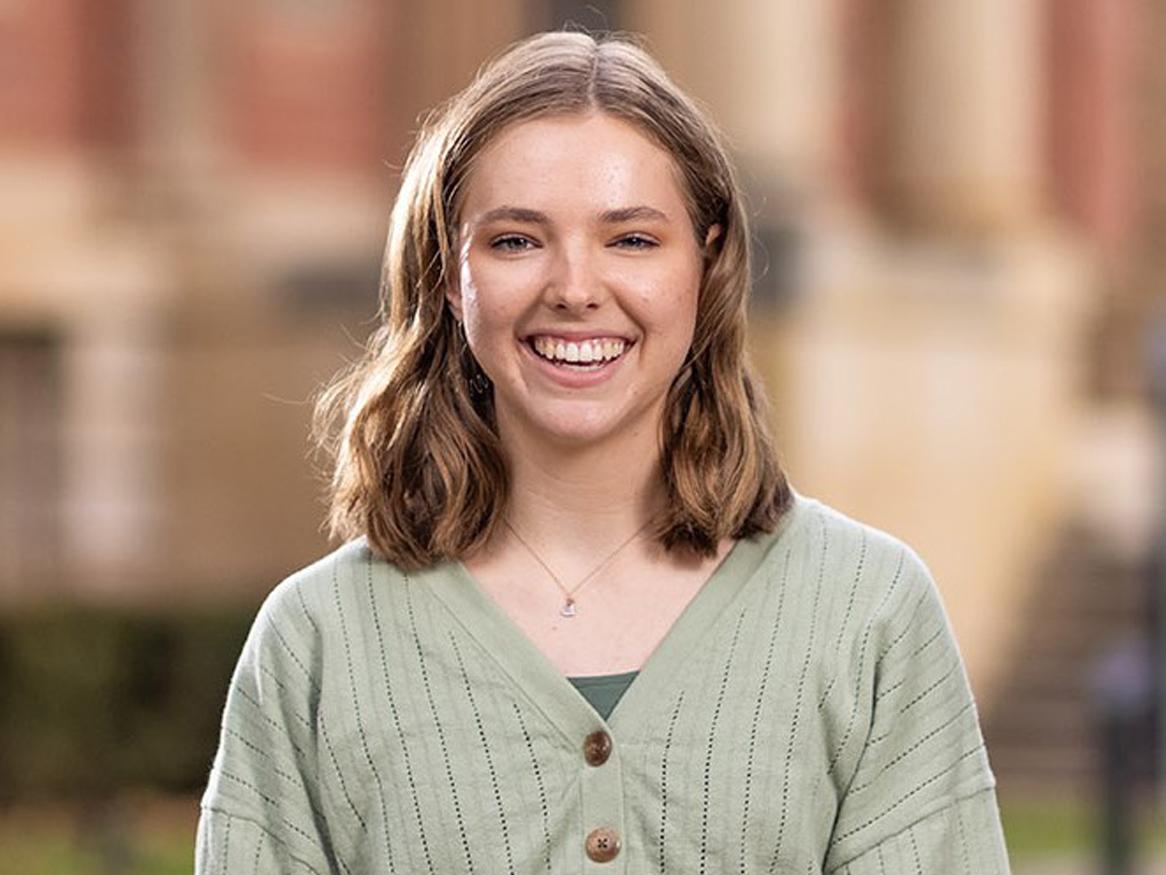Spotlight on engineering & mathematics student Alice Miller
To celebrate Ada Lovelace day, we spoke with one of our very own women in STEM, Bachelor of Engineering (Honours) (Environmental) and Bachelor of Mathematical Sciences (Advanced) student Alice Miller.

Ada Lovelace Day is an international day showcasing the many achievements of women in STEM. A mathematician and writer, Ada Lovelace was widely regarded as the first computer programmer having published the first algorithm intended to be carried out by a machine.
Third year student and Marta Sved scholar, Alice Miller is also participates in and is passionate about women working in and studying STEM.
STEM is exciting, and can be applied to solving so many problems – if you have a passion, you can find a way to apply Science, Technology, Engineering or Maths (or a combination!) to work within that field.Alice Miller
Getting to know Alice Miller
Having always enjoyed maths, science and design, Alice said she wanted to follow a career and study pathway where she could apply those skills in a way that would solve problems and make a difference, while continuing to be challenged and keep learning.
“My maths and environmental engineering degrees are fulfilling these key ideas and I’m working towards an engaging career in which I can make positive, sustainable change,” Alice said.
Why did you choose to study at the University of Adelaide?
The University of Adelaide stood out to me for a range of reasons, including the ability to study the degree I wanted with scholarships, and the support provided by leading research and student services. I love the atmosphere at Adelaide – we have a great campus culture and beautiful grounds and study spaces.
What do you enjoy about your time at uni?
One of my highlights of studying at uni is being involved in the community through clubs and volunteering. Not only is it a good way to be social and make friends, but you’re able to learn and develop confidence and professional skills while making a difference!
I’ve especially enjoyed my time on the Women in STEM Society (WISTEMS), developing school outreach initiatives to promote STEM to young girls in a fun, exciting way; planning social events for our university members, and networking and learning from other clubs and student leaders. I’ve had the opportunity to fundraise for girls’ education in Sierra Leone and Uganda and promote the positive social and environmental impacts that come from this cause.
Do you have any advice for women who would like to study STEM at University?
- Have confidence to apply! You will find a great support network of people at uni, even if you start not knowing anyone, or much about your chosen degree.
- STEM is exciting and can be applied to solving so many problems – if you have a passion, you can find a way to apply Science, Technology, Engineering or Maths (or a combination!) to work within that field.
- There are plenty of support networks (including the Women in STEM Society, Careers Program and more) to support you and diversity within STEM at university – you’re not alone.
